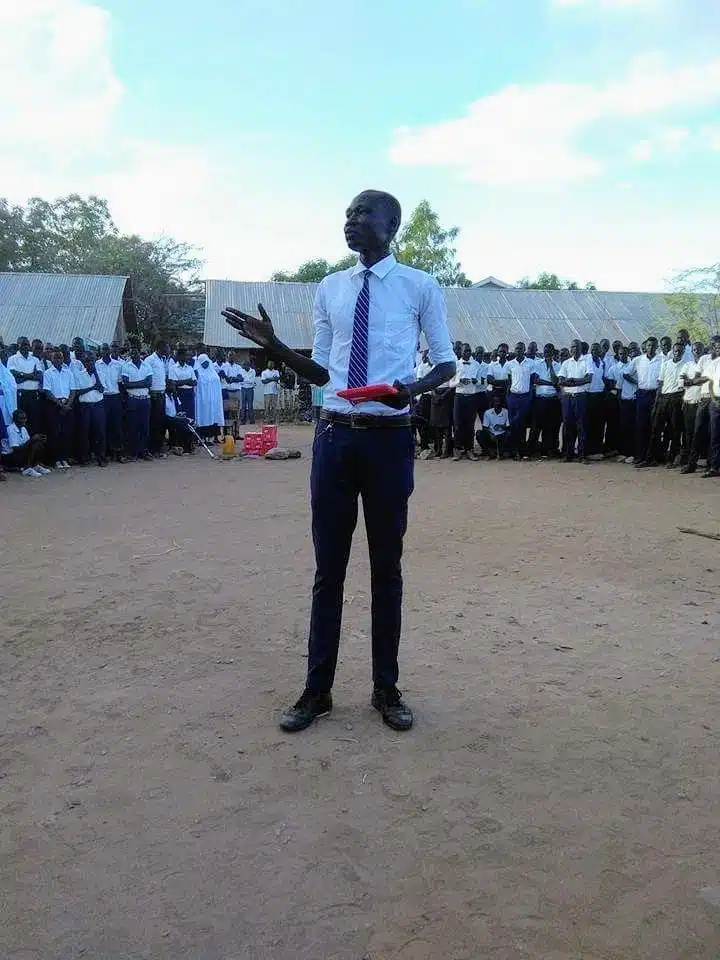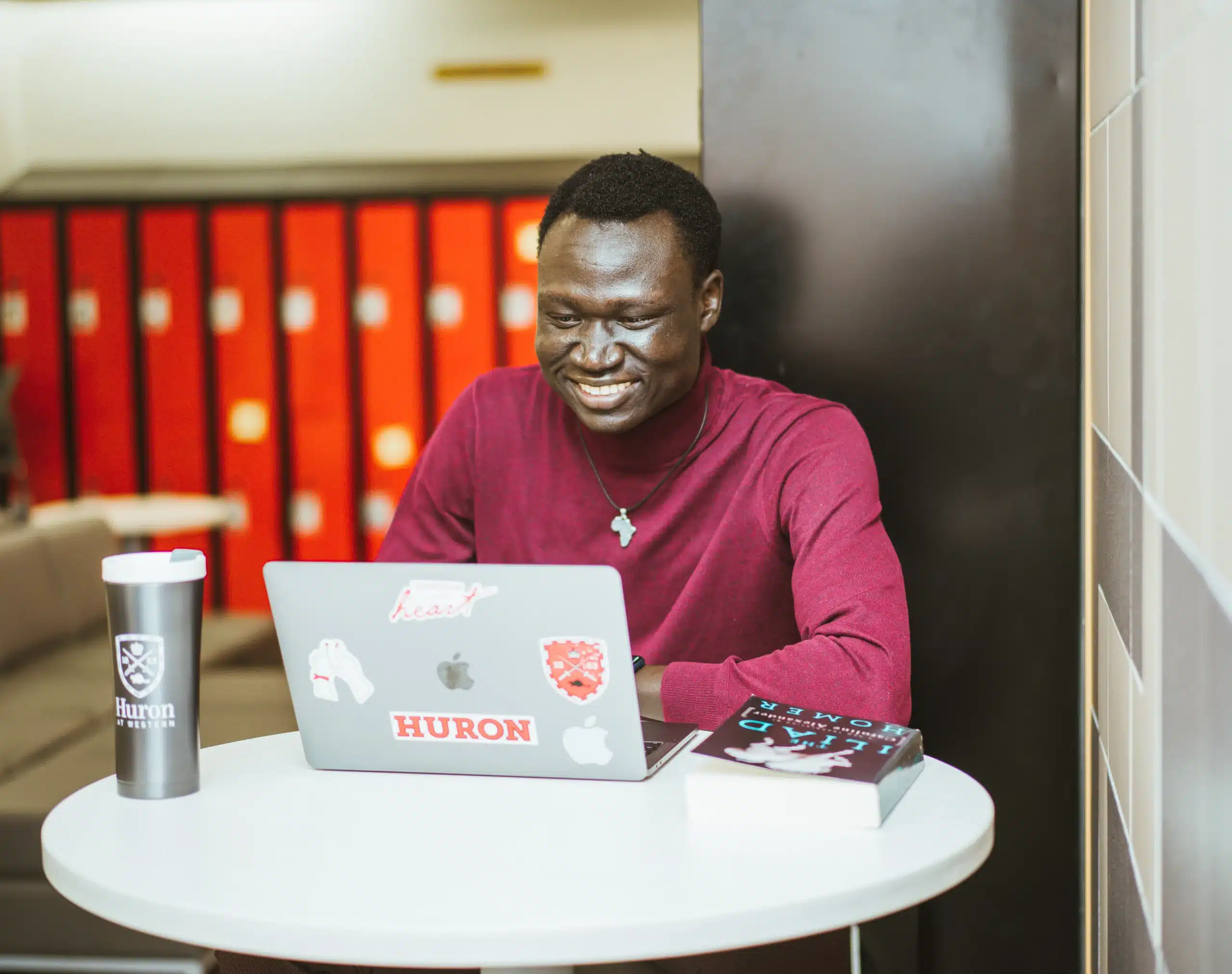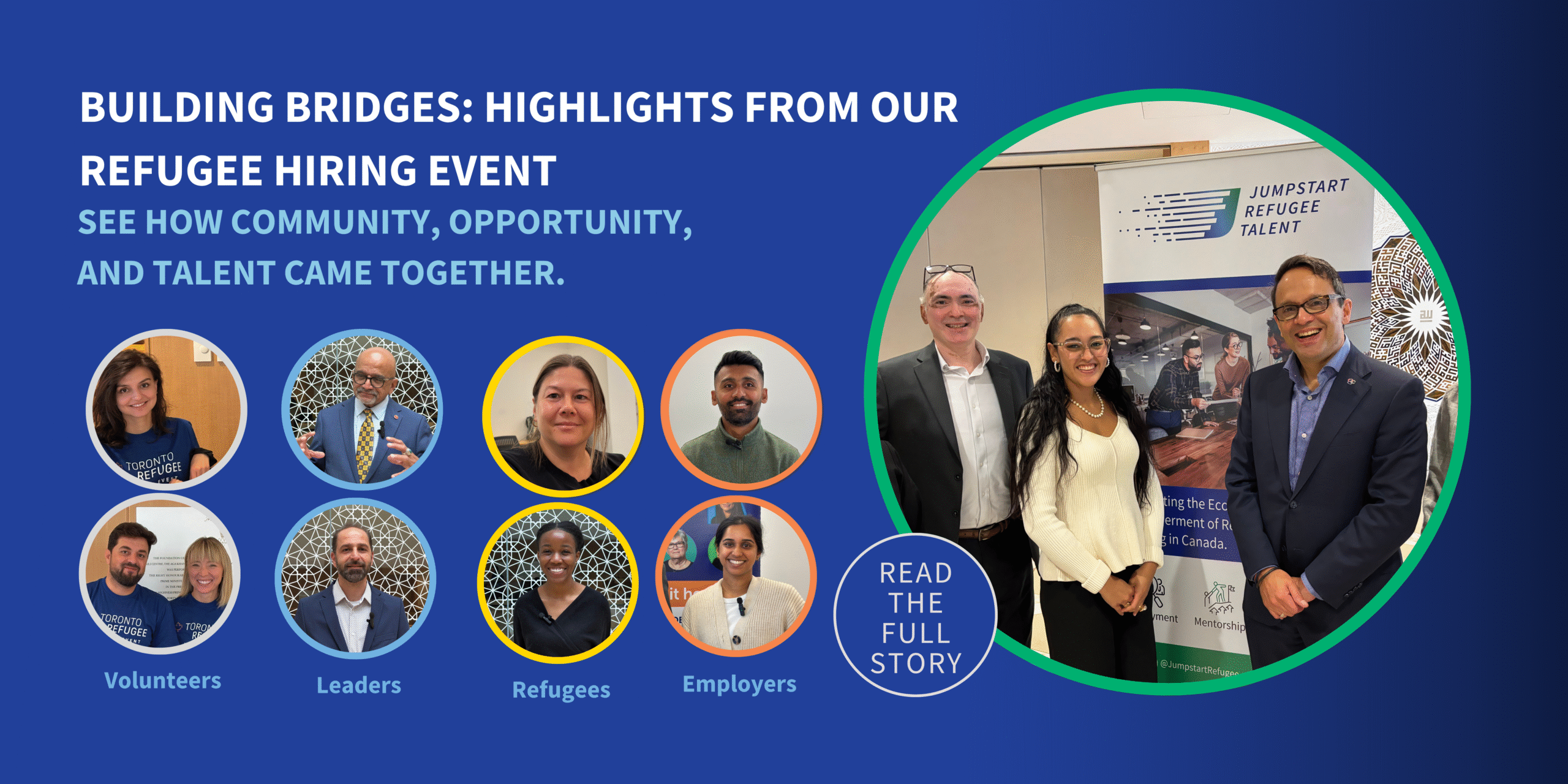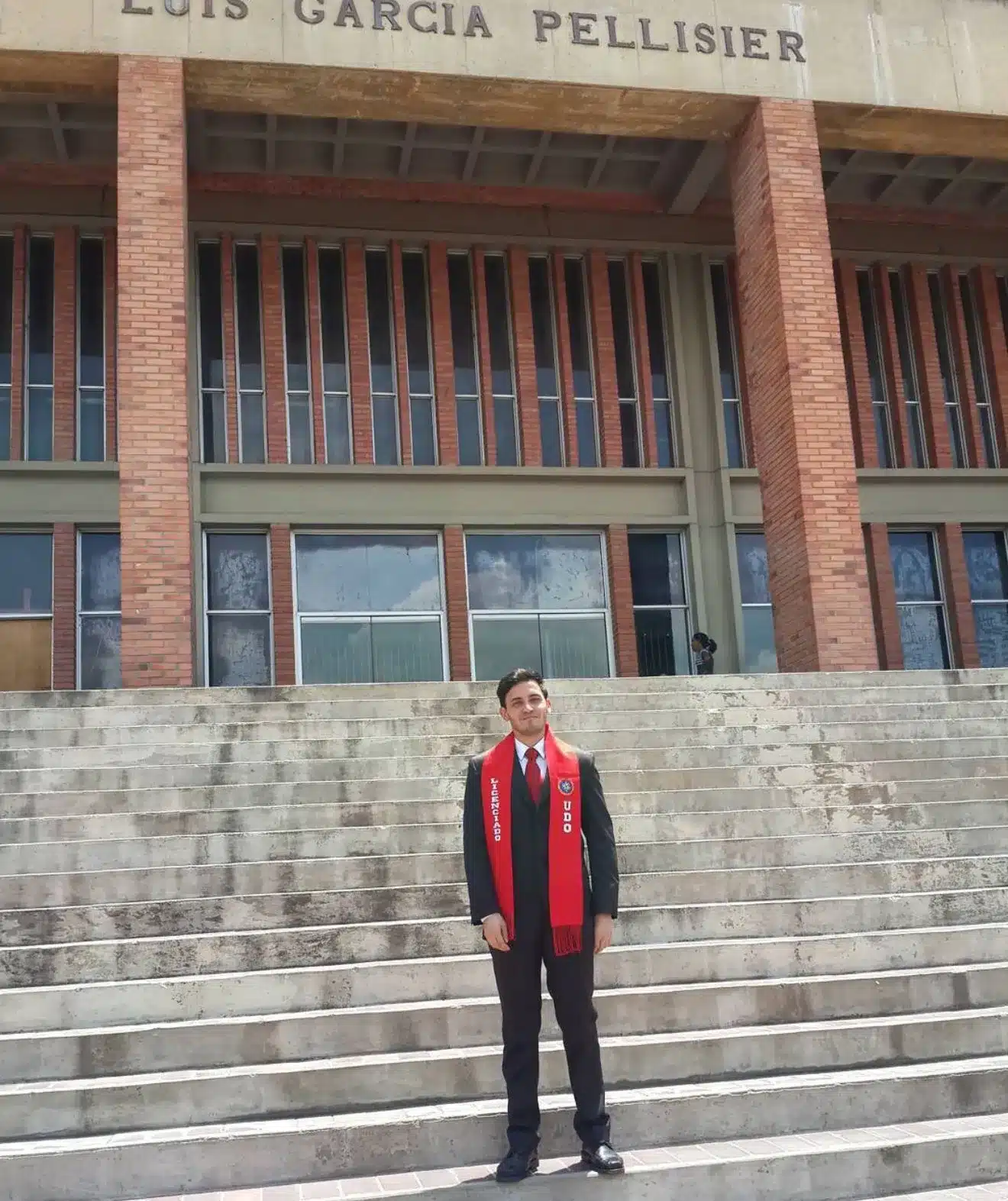Beyond the Resume is a storytelling series that reframes refugee professionals not as resettlement cases, but as global connectors and economic catalysts in Canada.
Changing the Narrative and Building a Future in Diplomacy
When Nhial Deng speaks about his journey, he does so with clarity, purpose, and a deep belief in the power of stories. Born in South Sudan and raised in a small village in Ethiopia, Nhial’s life has been marked by movement, displacement, and resilience. But it is his unwavering optimism and commitment to making an impact that shines the brightest.
Nhial’s journey as a refugee began in Ethiopia, where conflict uprooted his life and forced him into the uncertain path of displacement. Like many children in similar circumstances, Nhial had dreams that seemed impossibly distant. Yet even in the most uncertain times, one vision remained clear; his passion for journalism.
“My dream was to be a journalist. I have always loved telling stories,” he recalls. “My dad used to have a radio, and we would listen to the news together. That is where it all started.”
It was not just about reporting events; it was about amplifying voices. The radio became a tool of connection, a window into the broader world, and a seed that would eventually grow into a lifelong passion for community building and public service.

Through storytelling, Nhial began to understand the power of representation. He saw how narratives could shape perceptions and policy. This insight laid the foundation for his community work, which started long before he ever set foot in Canada.
Today, Nhial is completing his undergraduate degree and preparing for the next phase of his academic journey. He is currently applying to graduate programs in the United Kingdom and China; intent on gaining a global perspective that he hopes to bring back to Canada.
“I want to experience different systems, different cultures,” he says. “But I plan to return to Canada. This is where I want to build my future.”
His goal is to join the Canadian Foreign Service and serve as a diplomat. For Nhial, diplomacy is not just a career path; it is an extension of the same storytelling instinct that once made him dream of becoming a journalist. But this time, it is about representing Canada to the world, and ensuring diverse voices are part of that representation.
“I believe diplomacy can be a powerful way to foster understanding and peace. And I want to be part of that.”
Nhial’s perspective on refugee narratives is both personal and deeply insightful. When asked what he would change if he had a magic power, he responded without hesitation: the narrative around refugees.
“People often see refugees only through a humanitarian lens. But we are more than victims of the crisis. We are professionals, students, and contributors. We have so much to offer Canada.”
This narrative, he argues, shapes how refugees are treated in the job market, in policymaking, and in society at large. “I want Canadians to see us as human beings with goals, potential, and skills; not just people in need.”
Despite his accomplishments, Nhial, like many newcomers, has faced challenges in Canada. While he did not go into detail about his first job, he reflected on how difficult it can be to explain one’s credentials and previous experiences in a new country.
“There are always things that don’t translate easily,” he says, “especially when people don’t know the context of where you came from.”
He acknowledges the licensing and regulatory barriers that often prevent refugees and immigrants from working in their fields, a challenge that Canada is still grappling with.
“We need to rethink how we assess experience and potential. Otherwise, we are missing out on global knowledge and networks.”
Nhial believes that his lived experience, language skills, and regional expertise could be an asset to Canadian diplomacy.
“I understand the realities of conflict and migration. I can relate to people in ways that others might not. That empathy, that understanding; it is powerful.”
He hopes Canadian employers and policymakers will begin to recognize these strengths.
“If given the chance, refugees can bring so much value to the workforce. We are adaptable, we’ve overcome immense challenges, and we’re motivated to succeed.”
To those who see refugees only through a humanitarian lens, Nhial offers this message
“Let us thrive, not just survive. When refugees thrive, they do not only support their families; they contribute to the economy, to their communities, and to Canada’s global leadership.”
As our conversation closes, Nhial shares a final thought:
“To Canadian businesses, organizations, and decision-makers; do not underestimate refugee talent. We are not here just to help. We are here to help build, create, and lead.”
Nhial Deng’s story is a reminder of the potential that lies in every newcomer. It is not just about where you come from; it is about where you are going and the impact you are determined to make along the way.

Takeaways
- Refugees are more than their status; they are professionals, storytellers, and leaders.
- Changing the narrative is critical to unlocking refugee potential in Canada.
- Nhial’s journey highlights the value of global knowledge and lived experience in fields like diplomacy.
- Canada’s economy and public institutions stand to gain when refugees are empowered.






